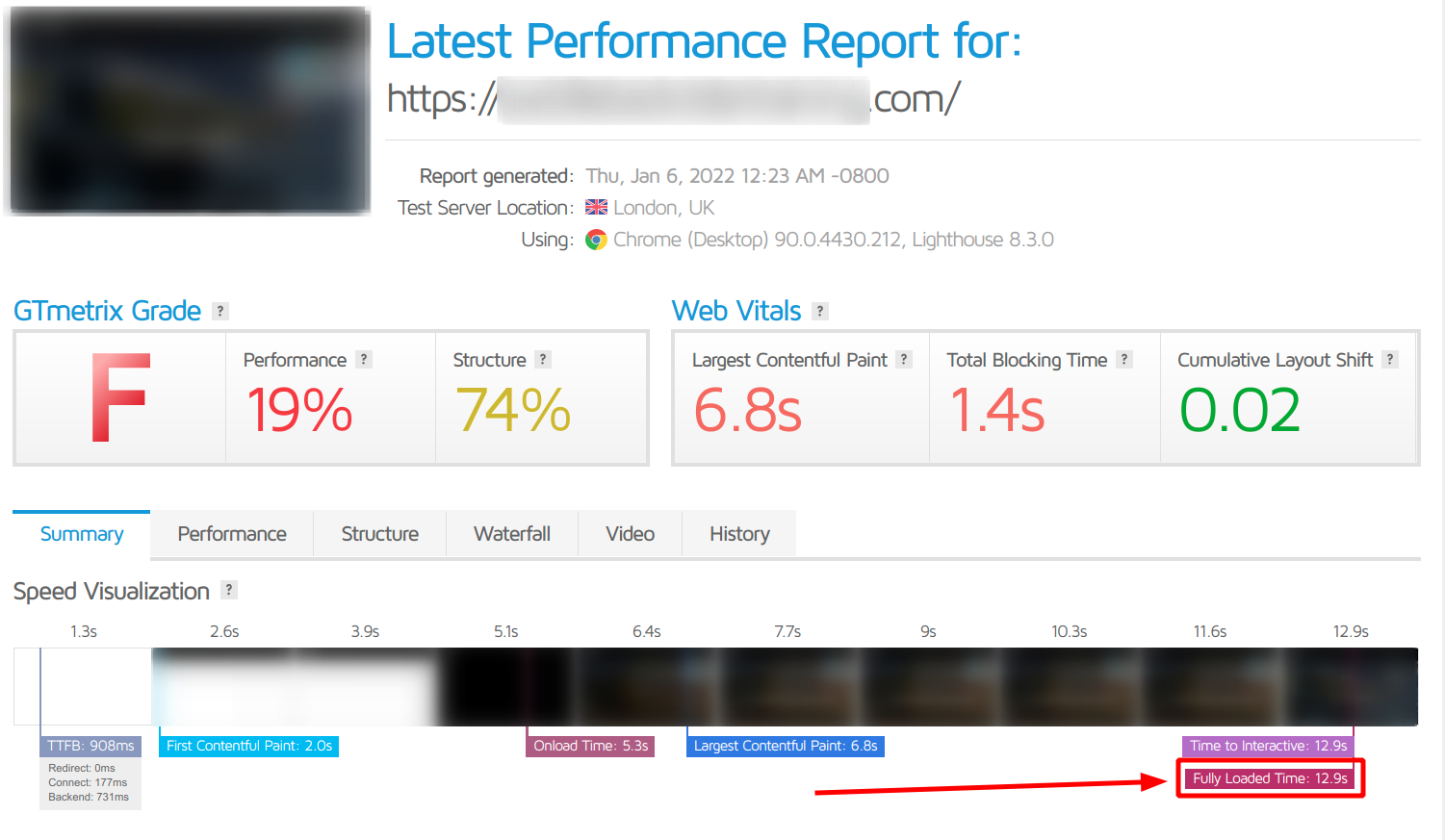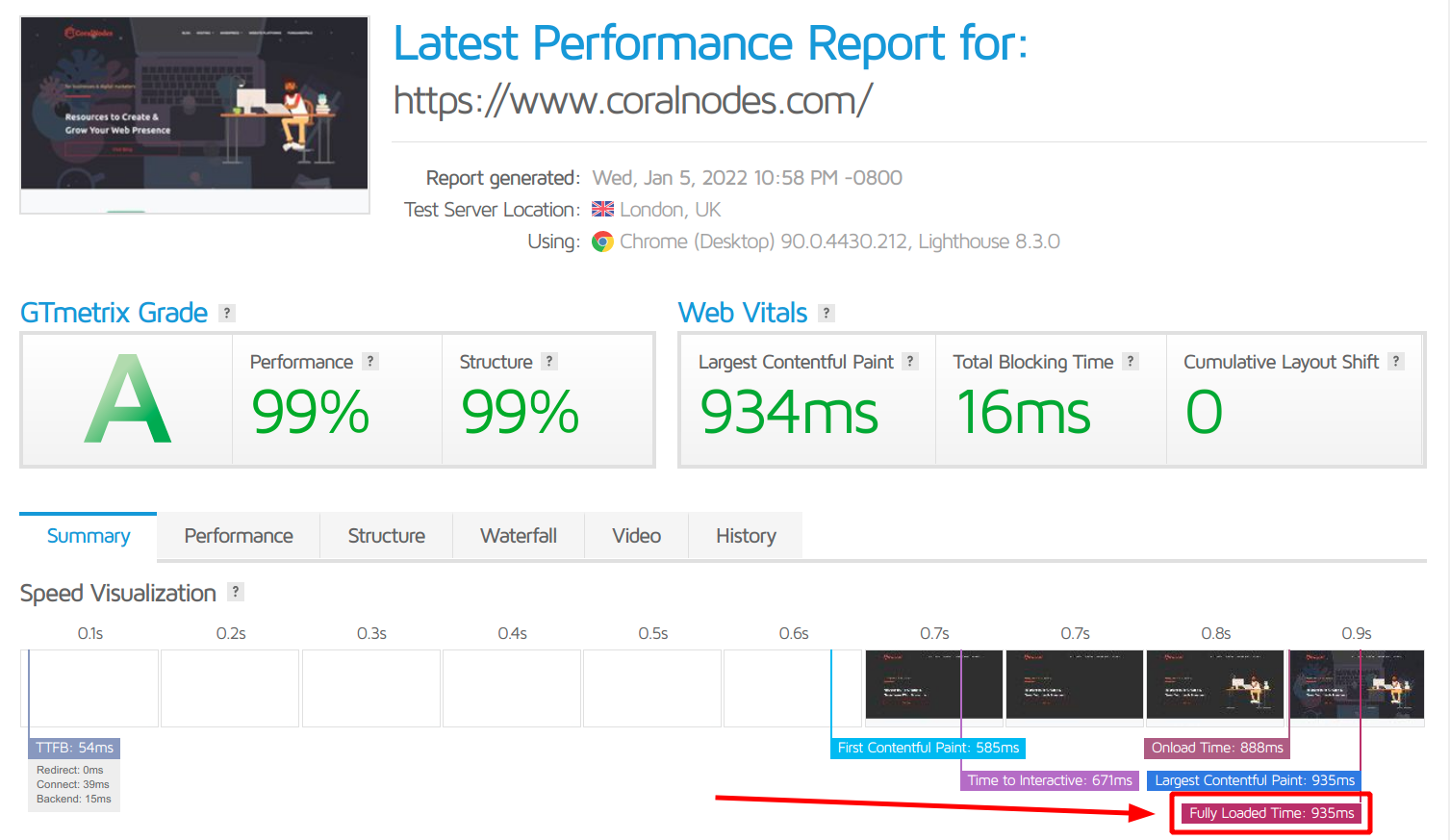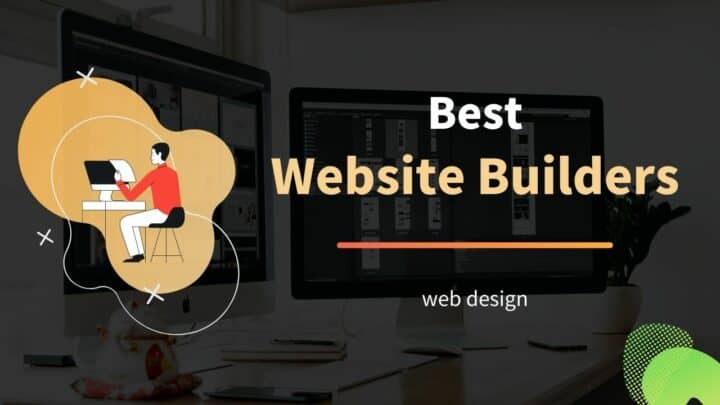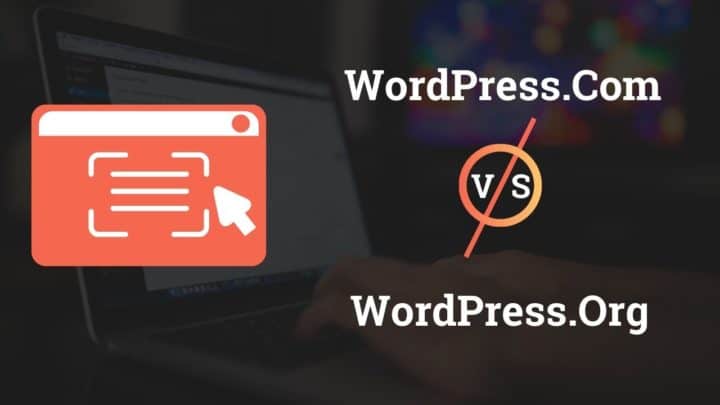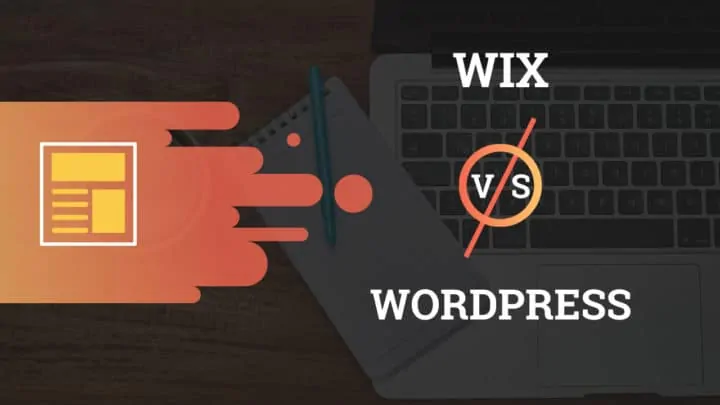While reading this blog, you can easily notice one thing. Most of the posts I write are about WordPress in one way or another. In fact, this website is also using WordPress as the content management system.
I have been using the system for more than five years now. But that doesn't mean I am not open to other systems or website builders. I like exploring other technologies and platforms and learning new trends in web development.
Recently I have tried the Ghost CMS and created a headless website, using Gatsby JS for the front end. The overall approach was quite different from that of a Monolithic system like WordPress, which I quite liked.
Over the years, I have seen many people who hold differing opinions about WordPress. They have their reasons too. So in this post, I am going to take a look at the disadvantages of WordPress.
- But remember that I don't mean to ignite an argument or to offend WordPress users. Instead, we will take an impartial look at each of the reasons, and try to understand why people are saying so. I will also mention the counterarguments wherever necessary.
With that let's begin.
1. WordPress is Old
WordPress was initially released in 2003. That's almost 19 years ago from the date I am writing this post. So there is no question that it's an old system, it's definitely not a shiny new thing out there.
If someone is new to web development and wants to try something modern, what can stop them?
There are several great choices like Strapi, Netlify CMS, Ghost, etc. They follow modern web development trends better than a Monolithic system like WordPress.
- So what is a Monolithic system and how does it differ from a headless system?
In a monolithic system, the frontend and backend are coupled together. There is no separation of concerns. For example, in WordPress, you need to know PHP, HTML, CSS, and JavaScript to create a template.
Even if you are just a front-end developer you need to know PHP to design a WordPress site. You often see HTML code inside PHP files. One can argue that it's not a modern way to write code.
Whereas in a headless system the frontend and backend are separate. The front-end developer need not know the programming language powering the backend and vice versa. The backend just provides a data API that the front can consume. It can be any programming language like PHP, Python, Node.js, etc.
The front-end developer can do his job using any modern stack like React, Vue, etc. There are also many static site generators like Hugo, Gatsby, Gridsome, etc.
Now let's check the other side of the coin. Although not modern, WordPress is a tried and tested solution. A modern decoupled system makes more sense within a team with multiple developers handling the backend and frontend jobs. But if you are just a one-man army then a Monolithic system is more convenient.
2. Too much maintenance
Maintaining a WordPress website is not a simple task. But that's the case with most open source content management systems.
There are several things that you need to manage. Security, updates, taking regular backups, performance optimization, the list is long.
Also, remember that WordPress is a self-hosted solution. So you have to find a web host and install the software on that server.
- Are you looking for a quick way to get a site up and running?
Then a hosted solution is better. Maybe you don't have the time, or you don't plan to learn the technical aspects of managing a website.
There are several options. Squarespace, Weebly, etc, to name a few. See my post on the top 9 website builders you can find today.
With a hosted solution you need not worry about any security issues, speed optimization, or other routine maintenance tasks. That's why many people seem to love platforms like Squarespace and Shopify.
- Now, what's the other side?
An open-source, self-hosted system gives complete freedom over your website. If you can take some time to learn the system, then the power it gives is unmatched. You can also get the help of an experienced developer who can handle things for you. There are several WordPress maintenance companies that offer professional services.
See also:
3. Not beginner friendly
Another question people often have is:
- Is WordPress beginner-friendly?
For all the reasons mentioned above, it's somewhat right that WordPress is not beginner-friendly.
One day or another you are going to encounter cache issues, broken plugins, or a slow-loading webpage. Instead of panicking, take the necessary steps to solve the problem. But to do that, you need to have a good understanding of how the system works.
So if you are not a tech-savvy person but want to start a blog or website, then again, a hosted platform is better.
4. Dashboard is not user-friendly
The WordPress admin area has lots of settings and options. Over the years it has seen several updates and redesign. But I think it still lacks a modern look and feel.
Take a look at the dashboard. You can see several widgets, a large menu on the left side, a top bar. That's how it looks on a fresh WordPress installation.
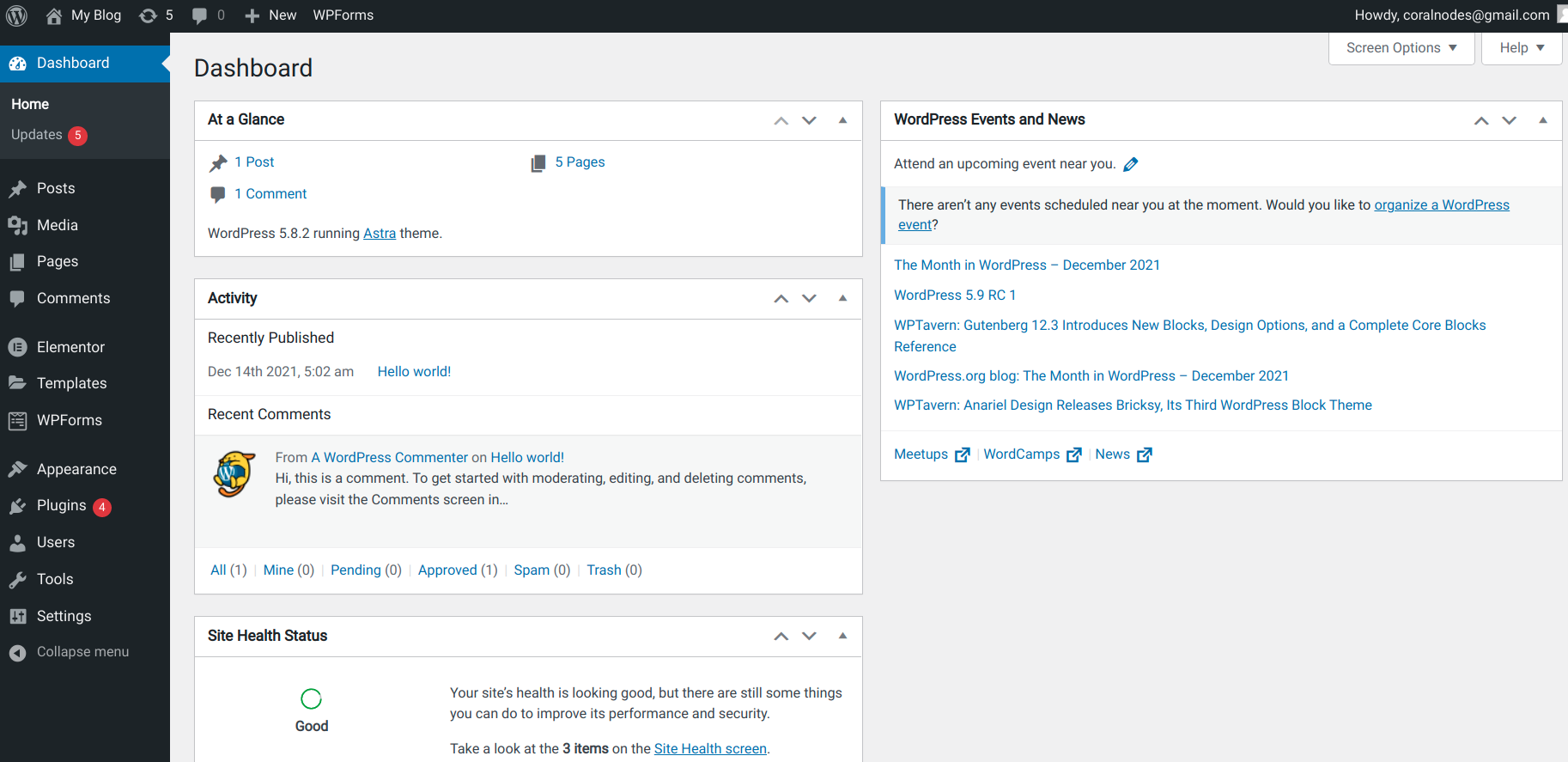
WordPress Dashboard
Install a new plugin and it adds to the clutter. Most plugins add additional menu items and settings pages to the WordPress dashboard.
Unless you know how to navigate through all these pages, you might feel completely lost in this ocean.
For instance, WordPress URLs are not SEO-friendly by default. Of course, you can set that with a single click. But do you know where to do that? On what page that setting is located?
On the other hand, take a look at the Ghost dashboard. How neat it is. Lots of white space and easy to navigate:
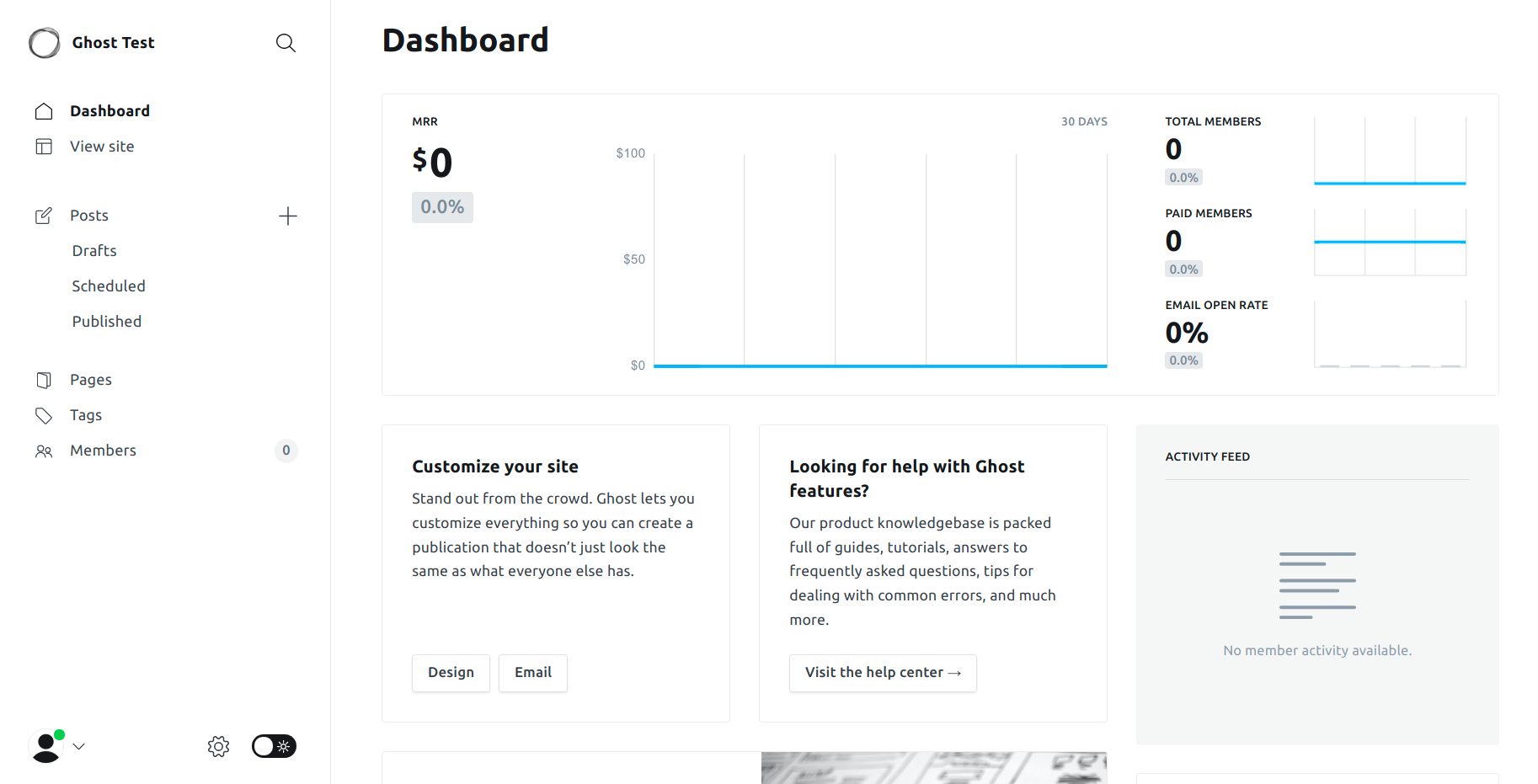
Ghost CMS Dashboard
5. Not secure
Another argument I often hear against WordPress is that it's not secure.
Why? It's such a popular open-source software powering almost 40% of the websites worldwide. So if someone discovers a security hole or a vulnerability it instantly affects millions of websites around the world.
There had been several occasions in the past when a single plugin error made hundreds of thousands of websites vulnerable to attacks.
- But does that mean WordPress is inherently insecure? No.
The core WordPress software is actually well maintained. However, vulnerabilities creep-in in the form of insecure plugins and themes. Not only due to inexperienced developers but sometimes well-known plugins can also cause this.
But what can you do to prevent this?
- Always keep the core WordPress, themes, and plugins updated.
- Never install plugin or theme from untrusted sources.
- Avoid nulled themes.
6. WordPress uses PHP
As you might already know, WordPress is built using the PHP programming language. And that's where another argument comes in. For many developers, PHP is not a great programming language.
Originally created in 1994, PHP has changed a lot now. It's true that PHP was not that great when it was in version 4. But PHP 5 improved a lot upon that. Again, PHP7 has seen further improvements. Currently, PHP is in version 8.
PHP is a modern programming language with solid object-oriented programming principles built-in. However, the word modern is subjective. According to these benchmark tests conducted by Kinsta, PHP 8 is almost 2x faster compared to PHP 5.6.
Frameworks like Laravel and Symfony are helping PHP to maintain its significant presence.
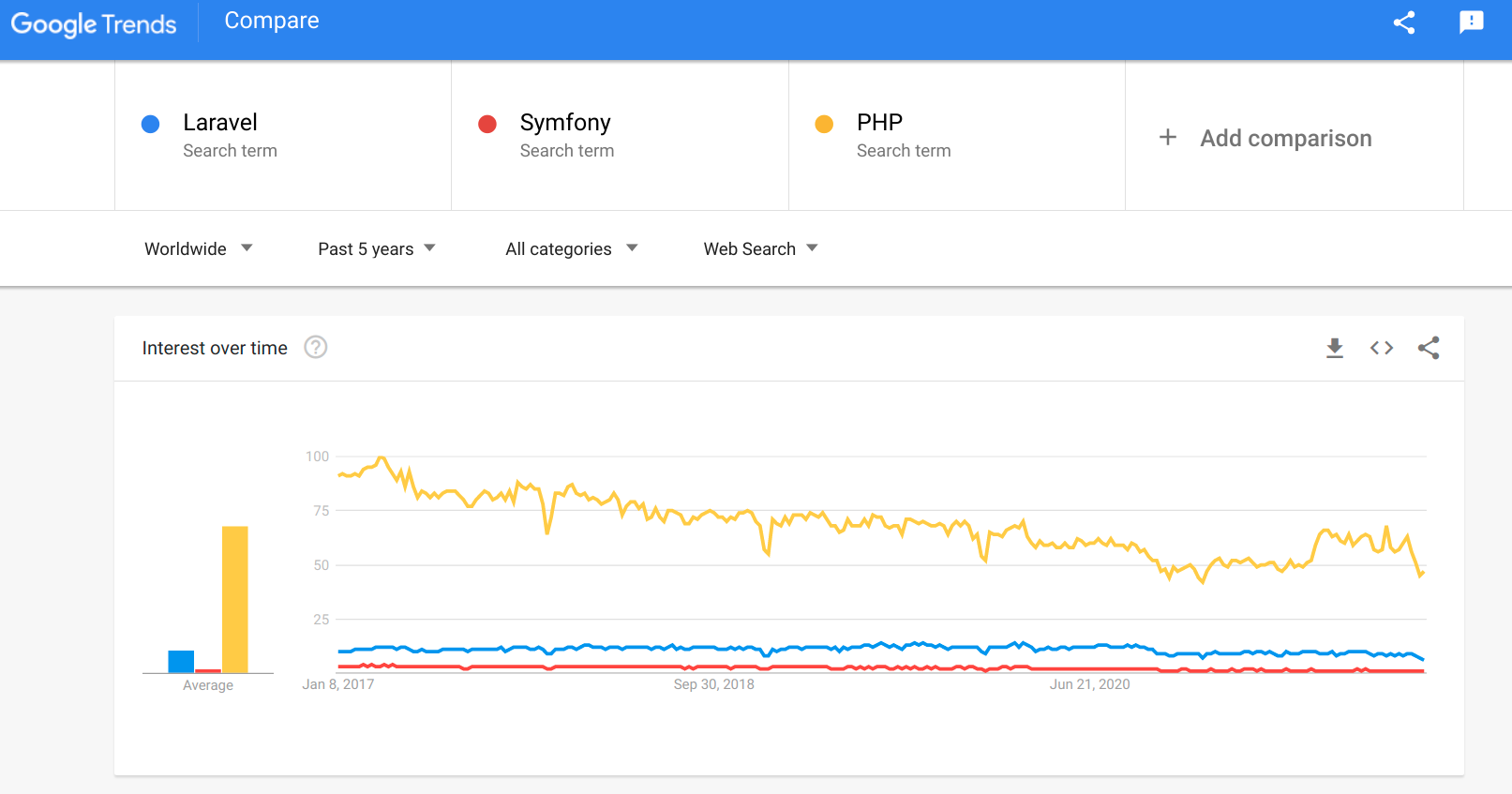
It looks like the trends have stabilized in recent years - source: Google Trends
Also, according to the statistics from W3Tech, PHP is used by around 78% of all websites.
7. Plugin issues
The core WordPress software is actually quite minimal. For instance, it does not include any SEO features, performance tuning, or anything like that. So, installing a few essential plugins is inevitable to make it a complete website.
But unfortunately, these plugin developers don't know each other. So, one plugin can cause issues with another, at least rarely.
Whenever you install a new plugin or update an existing one, you should make sure that it doesn't make any conflicts.
8. No support
There is no central authority to provide support for WordPress users.
The support options are scattered across several places. If you are using free themes and plugins, then the best place to get support is the wordpress.org forums itself. However, the downside is that you might end up waiting for hours or days before getting a reply.
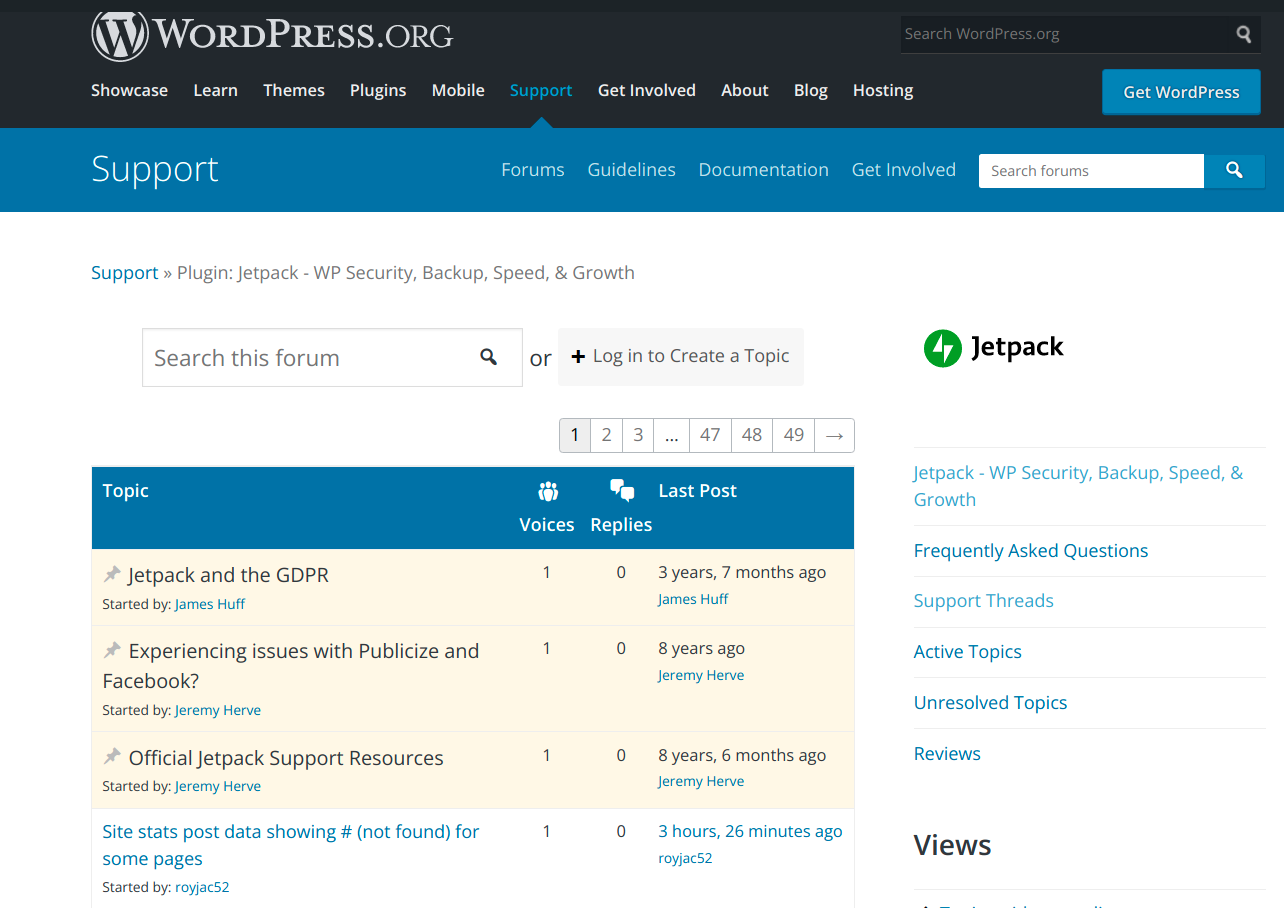
The forum has a support section for each plugin - for example, showing Jetpack
The story can be a bit different if you are using a premium theme or plugin. WordPress developers often provide paid support for the products you have bought from them. But still, they may not be able to provide support for all your WordPress-related issues.
Your web hosting provider is another place from where you can get support. Again, the quality of support varies from one hosting provider to another.
If you want expert & reliable support, then getting managed WordPress hosting may be the best solution. However, that's not usually cheap.
WordPress is such a popular platform. So you should be able to get answers to your questions from one place or another.
9. WordPress is slow
As a dynamic system that executes several server-side functions and database queries, there is no denying that WordPress is slow.
The problem can amplify as you add more plugins to the site. That's the reason why WordPress optimization is a vast topic. You need to do several things to make a WordPress website load in milliseconds.
The list of things includes setting up cache, integrating a content delivery network, minification of CSS and JS files, setting up Redis or Memcached on the server level, etc.
So one thing is clear: WordPress optimization is not something a beginner can do easily.
I have seen WordPress websites that crawl like a snail. I have also seen WordPress websites that fly like a jet.
Here is an example - both WordPress, but totally different results:
If you manage to get things done right, you can get fantastic results. But that requires a great deal of knowledge.
Conclusion
In the above sections, we discussed the various disadvantages of WordPress, that make it not ideal for everyone. Are you a WordPress user? What is your experience?

